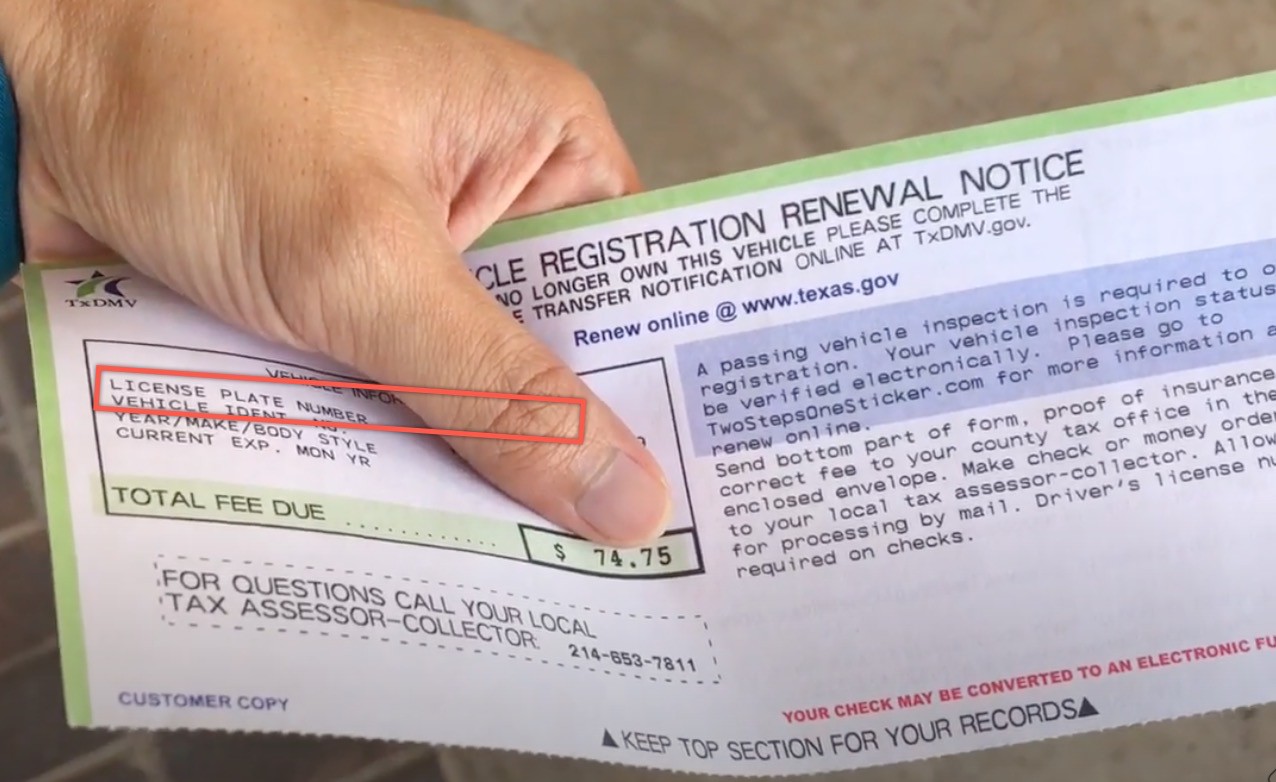When you decide to own a car in Texas, the law demands that the vehicle is registered, and it cannot be driven without license plates. These license plates are used to identify your car and connect it to you, the owner.
When in Texas, motor vehicle registration is handled by the Texas Department of Motor Vehicles. Once a car is registered, you are issued with a license plate number. The law in Texas requires that a motor vehicle must have front and rear license plates to be allowed on the road.
Interesting Insight ⭐
Texas has a "Don't Tread on Me" specialty license plate. This plate features the famous Gadsden flag design, symbolizing the state's strong sense of independence and historical pride. It’s a popular choice among Texans who want to showcase their heritage and support for individual rights and freedom.
Where to Find My Texas Plate Number?
Generally, you can easily your plate number easily by looking at the issued license plate attached to your car. However, you can also look it up on your car's Texas registry renewal notice.
License Plate Lookup in Texas
When you buy a new car in Texas, you must register it within the first 30 days. For vehicle registration in Texas, you'll need to provide details such as your address and insurance information. New residents are required to register any vehicles from out of state as soon as they relocate to Texas. Once your registration is complete, you will receive a registration sticker. Texas law mandates that this sticker be placed on your car's windshield, or on the rear license plate if you have a moped or motorcycle.
By using VinFreeCheck's free license plate lookup service, you can access comprehensive, legal, and current information on any vehicle.
The information available from a license plate lookup includes:
- Salvage records
- Liens against the vehicle
- Odometer readings
- Title status
- Previous ownership details
- Critical title brands
- Theft history
- Accident reports
- Designations for special purposes, such as police or taxi use.
Where Does the Data Come From?
We rely on multiple sources to compile our license plate report. Many of our sources come from governmental entities such as the National Insurance Crime Bureau (NICB), National Highway Traffic Safety Administration (NHTSA) and the National Motor Vehicle Title Information System (NMVTIS). We also regularly check the car auction inventories to track various vehicle's condition.
License Plate Registration in Texas
To be able to register your newly bought car in Texas, you need to visit the local county office. You will need to bring:
- A signed title from the seller
- A filled application for the Texas title from the seller
- If bringing a car from another state, you need proof of a paid sales tax
- Car insurance information
- Fees and tax payment
When registering out of state vehicles, you will also need to bring:
- A vehicle inspection report done in Texas
- A verified VIN (Vehicle Identification Number)
License plate registration costs vary based on the value of your vehicle. There is a standard transfer fee of $2.50 and a standard title fee of $33. You will also be required to pay either a motor vehicle sales tax, which is 6.25% of the vehicle purchase price or to pay a standard presumptive value (SPV) depending on which amount is higher of the two.
In Texas, it is possible to transfer your Texas license plate from one car to another, provided you own both of the vehicles. When making a license plate transfer, you need to notify the county tax assessor-collector’s office. They will issue you with a new registration sticker. You will need to remove the old sticker from the car you detach the plates from.
Once you register your motor vehicle, your new license plate will be valid for the next seven years. In 2016, the state of Texas stopped the automatic renewal of plates after seven years. Once the time lapses, you are required to make a subsequent registration from your county tax office. This also applies if you lose your license plates, or they get damaged.
Type of Vehicle License Plates You Can Apply For in Texas
There are numerous types of license plates you can register for in Texas. For you to be an eligible applicant for the special license plates category, you will need to submit proof that you are eligible for the special plates. Types of license plates in Texas include:
- Disabled license plates
- License plates for colleges and universities
- License plates for classic, antique or custom vehicles
- License plates for veterans and military
- Organizations license plates
- Occupation license plates
- Other vehicle types license plates
Is it Legal to do a License Plate Lookup?
Yes, we are in compliant with the Driver's Privacy Protection Act (DPPA), as we do not disclose information about the vehicle's owner personal details. Our license plate lookup does a reverse lookup to obtain the VIN number and query the vehicle history reports for it. Nothing in our report is personably identifiable to a particular individual.
Additionally, the Freedom of Information Act (FOIA) allows any individual the right to access to information collected by the government. There's no reason for you not to give our auto license plate lookup tool a try. It's totally legal and FREE!


